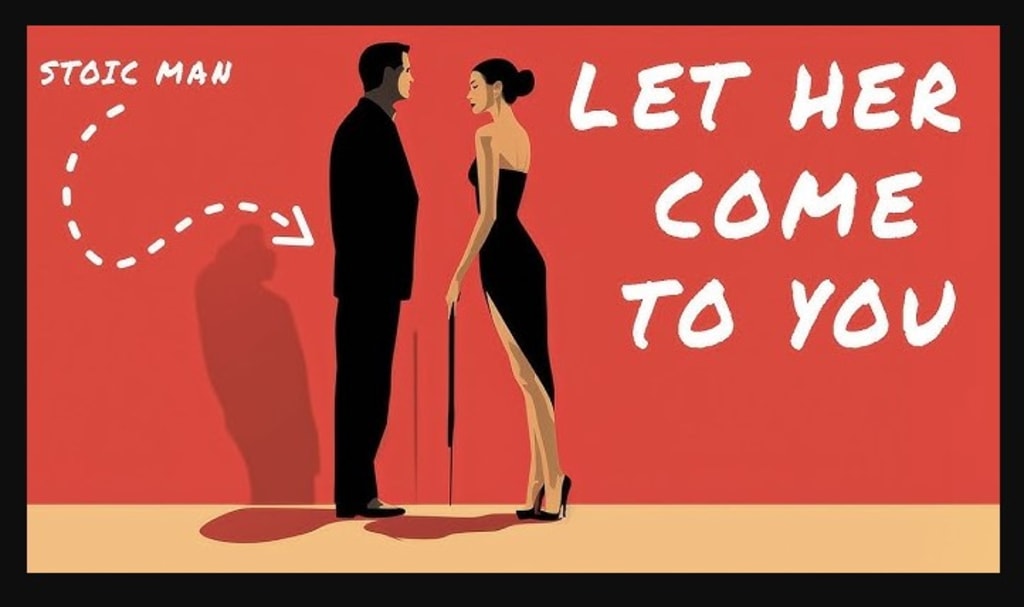A Stoic's View of Why Rejection is a Gift
Rejection

What if I told you that there's another way to view Rejection? What if we gave you a perspective where Rejection is not considered a setback but an intriguing gift? In life, we all experience the biting sting of Rejection in its many forms. It could be a job we didn't get, a proposal turned down, a love unrequited, or an idea dismissed. Many of us perceive these denials negatively, frequently allowing them to demotivate us interfere with our peace, or even define The Stoics, a school of philosophers that originated in the Hellenistic era. Their philosophy is one of resilience, acceptance, and comprehension of the natural order of things. Stoicism as a philosophy doesn't avoid the harsh realities of life; rather, it gives us a framework to accept and even accept these realities. Stoics like Seneca Epictetus and the Roman Emperor Marcus Aurelius emphasized the dichotomy of control, emphasizing that some things are under our direct control while others are not. We control our thoughts, perceptions, and reactions, but most external events, such as other people's actions, societal acceptance, and Rejection, are outside our direct control. We ought to grow to embrace or not care about things beyond our control because our energy is most effective in concentrating on the things we can manage. When we use this concerning Rejection, it offers a paradigm shift; we realize that Rejection doesn't seem a personal slight or a reflection of our value but rather an outside event that has occurred and, most importantly, something we may benefit from. Let's look more closely at this stoic perspective on Rejection.
According to the Stoics, only our ideas, behaviors, and actions are within our control when faced with hardship because they separate the world into two categories: things we can control and things we cannot. This is referred to as the dichotomy of control. We cannot control external circumstances, the past, the future, other people, and, yes, Rejection. How does Rejection fit into this? According to the Stoics, recognizing this contradiction is the first step to having a good and meaningful life. They thought we should concentrate on what we could alter and accept what we couldn't. We cannot control whether someone may reject our ideas, sentiments, or efforts; what we can manage, however, is how we react to Rejection in any of its manifestations. Rejection occurs to us, not because of us. Rejection is viewed as a natural aspect of life and a chance for growth and development by the stoic rather than as a personal setback. This perspective lessens the sting of Rejection by reframing it from an obstacle into a stepping stone towards our improvement, so how precisely do the stoics propose we deal with Rejection? They saw it as an opportunity to practice resilience and strengthen our character.
Let's examine that subsequent from a stoic viewpoint. Rejection is not a personal attack but a natural part of existence, just like the seasons changing or the tides' ebb and flow. How do stoics view Rejection? They see it as an event entirely out of their control, the choice of another individual to reject your concept. Understanding this is crucial to changing our viewpoint of Rejection. Your love or effort depends on their opinions, circumstances, and decisions, which are outside your control. Stoics were aware of this, so they did not allow Rejection to upset them. However, this does not imply that they were oblivious to Rejection; rather, they believed that every experience, including Rejection, can teach us something. For example, if they had rejected an idea, a stoic would ask themselves, "What can I gain from this? How can I enhance my idea?" Instead of dwelling on their emotional reactions to Rejection, they decided to think about how they may learn from it and improve in the future. However, they also acknowledged that not all rejections indicate their flaws. Sometimes Rejection occurs due to the other person's circumstances, preferences, or understanding of the situation, and that's okay. As a result, stoics saw Rejection as an opportunity to learn, grow, and strengthen their character. They saw it as a test of their endurance and a chance to put their philosophy into practice. In the face of Rejection, they remained calm, composed, and focused on what they could influence their response.
Promote resilience, support human development, and provide A fresh perspective. First, Rejection nudges us to step back, look at our actions, and ask crucial questions. It forces us to reevaluate our beliefs, behaviors, or ideas. According to the famous Stoic philosopher Epictetus, "Difficulties are things that show an individual what they are. Second, Rejection pushes us to grow stronger because it tests our resilience and demonstrates that we can manage and overcome adversities." Our approach needs to be adjusted, our communication style must be refined, or our ideas must be more mature. The Roman Emperor and stoic philosopher Marcus Aurelius brilliantly emphasized this concept when he remarked, "What stands in the way becomes the way. In other words, the very problems we face, including Rejection, might open up opportunities for progress.
Last but not least, Rejection can change our perspective. It serves as a reminder that life isn't always about getting what we want; rather, it's about appreciating what we have and discovering contentment within ourselves. It also teaches us that our worth is determined by our virtue and character, not by external validation; as Seneca, another well-known Stoic, so eloquently put it: "Life is a story; what matters, in the end, is not how long it is, but how Rejection may serve as a useful tool for developing oneself. Considering resiliency and self-awareness from this angle, Although it can be difficult, Rejection feels like a gift that can help us grow into better versions of ourselves.
How to be a stoic in the face of Rejection The practices discussed in this section are intended to help us change our mindset and views toward Rejection. First, we must acknowledge and accept the disappointment or hurt we feel when receiving a rejection; the Stoics did not believe in repressing feelings but in understanding and accepting them. Recognizing our emotional reaction is the first step in successfully handling Rejection. We should then be reminded of the stoic philosophy's core premise of the dichotomy of control, which emphasizes the importance of focusing on our attitudes, actions, and reactions rather than worrying about other people's perceptions or choices. Thirdly, draw lessons from the experience. Every Rejection offers an opportunity to learn and grow. Ask yourself what you can gain from this. What can I enhance or alter? What strengths did you discover in the process? Face rejection instead of becoming caught up in external circumstances. Reflection Turns Turning the sting of Rejection into insightful knowledge for personal growth.
Lastly, practice changing your perspective. Instead of viewing Rejection as a personal setback, alter your viewpoint to see it as a compass pointing you toward a better course. This powerful mental exercise supports the stoic principle of turning challenges into opportunities. It encourages us to view Rejection not as a dead end but as a diversion to something potentially greater. Seneca once said that every new beginning emerges from some other ending. Applying these stoic concepts helps in coping with Rejection and nourishes a more resilient and content existence. Building on the stoic viewpoint, we see that Rejection doesn't always have to be a hurdle; it may be a stepping stone. When we perceive Rejection as a hidden chance for personal development, we value it by exhibiting resilience and acceptance. When faced with Rejection, rather than wallowing in disappointment, ask yourself, "What's the gift here?" We can turn our encounters with Rejection into profound lessons that drive us toward our real path. Remember the stoic maxim that the obstacle is the way; sometimes that obstacle may be Rejection presenting you with an unexpected gift and leading you to a path you hadn't considered, but which may be the path You Were Meant To Tread all along. A subtle shift in perception could bring about significant changes in your life, redefining how you perceive and navigate your personal and professional journey. As we part ways, keep in mind this maxim.
About the Creator
Ian Sankan
I am a writer with proven writing ability in various fields. I consider writing a passionate career and a platform through which I extend my intellectual ability.






Comments
There are no comments for this story
Be the first to respond and start the conversation.